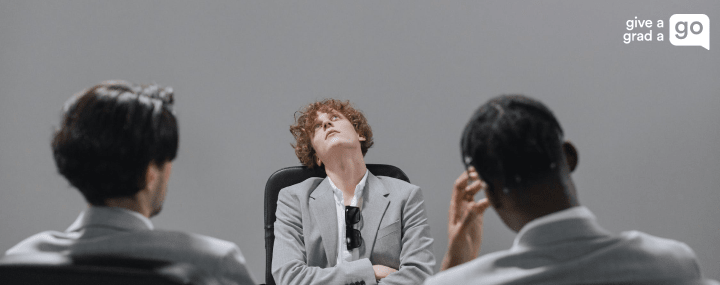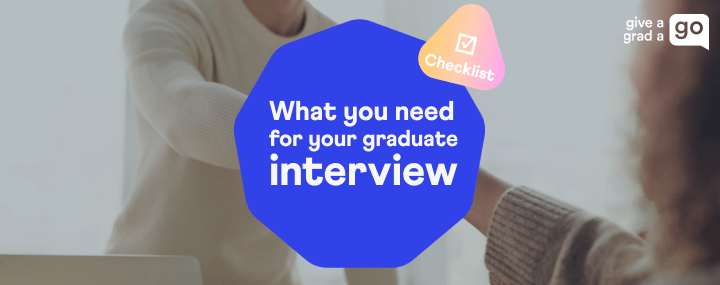Even if you’ve prepared all your answers to the most common interview questions, there’s something else to contend with; the many different styles, methods and types of interviews.
For different graduate jobs, employers will often choose to use very different interview styles; often related to the specific skills or personality type the role requires.
The more you know about the various types of interviews, and how they relate to different graduate jobs, the better – so check out this quick list of 6 types of interviews – and how to master them.
1. Behavioural interviews
Behavioural interviewing is a common type of job interview, which relates to how you have handled a situation in the past, rather than how you would handle a situation if it arose.
Often used in interviews for client-facing graduate jobs like Account Management and Client Services, it helps the employer to gain a better sense of your approach to work.
A common question would be something along the lines of “Give an example of a goal you reached and tell me how you achieved it.”
Behavioural/competency interviews are commonly used for the following graduate jobs:
- Account Executive / Account Manager
- Client Services
- Consulting
- Sales
2. Case interviews
Employers often use case interviews to test your problem-solving ability.
In this particular challenging interview method, you will be faced with a challenging business situation, with no real data or context, and will have to come up with a viable solution on the spot.
These types of interviews are used to test candidates’ analytical ability and critical thinking, within a business context.
It gives employers a good understanding of how you will perform in a real-life situation.
Case interviews are commonly used for the following graduate jobs:
- Finance
- Business Management
- Consulting
- Analyst
3. Portfolio-based interviews
Often used in creative & design graduate jobs, a portfolio-based interview will help an employer decide whether you have the skills, experience and knowledge base necessary for the role.
You will likely be asked to bring your portfolio to an interview – so make sure it’s completely up to date, and that you can explain your thought process, motivation and intention for each piece in your portfolio.
Portfolio-based interviews are commonly used for the following graduate jobs:
- Graphic Designer
- Photographer
- Copywriter
- Artworker
4. Panel interviews
Sometimes, employers like to get the opinion of several members of their team; sometimes from very different parts of the business.
In this particularly nerve-wracking type of interview, a candidate will be asked questions from a panel.
Remember that when you’re answering, you should focus on the person who actually asked you the question – but occasionally make eye contact with the rest of the panel.
Panel interviews are commonly used in interviews for:
- Sales / Business Development
- Finance
- HR
- Account Management
5. Phone interviews
For almost all graduate jobs, telephone interviews will often be the very first step in the interview process – and are an employer’s way of learning more about you, your skills and your experiences.
They are usually fairly straightforward – just remember to remain professional, and show how excited you are about the opportunity.
Check out our top 5 tips on how to answer the call.
6. Video interviews
Video interviews are becoming ever-popular with employers, and are often conducted over Skype before a face-to-face interview.
It’s easier to zone out over video – so make sure you’re fully focused on what the interviewer has to say.
Then, take your time to compose yourself and think about what you’re going to say before you rush to reply to their question.
Video interviews are fairly common across all sectors; so whatever type of graduate jobs you’re applying for, make sure you’ve downloaded Skype to your personal computer to get prepared!
Interview preparation tips for candidates
If you’re concerned about preparing for an interview, check out these quick tips for candidates:
- If you do not have a lot of knowledge about the business world in general, you might want to click here to view programme options that could be beneficial. You don’t need to have completed the course – but showing that you are willing to and that you’re dedicating to improving yourself can be a huge plus point.
- Make sure you do a trail run in terms of getting to the offices so that you know exactly how long it is going to take.
- Make the most of practice questions online too but make sure you do not come across as too rehearsed.
- Do your research about the company. You need to show that you want to work for them and that you will fit in with their ethos and environment.
Common interview questions and sample answers
Tip: change the playback speed in the settings at the bottom right corner, to suit your learning requirements. Subscribe to our YouTube channel for more great videos!
Looking for more career advice for graduates, or ready to start applying for Graduate Jobs? Search graduate jobs UK on our job board.







